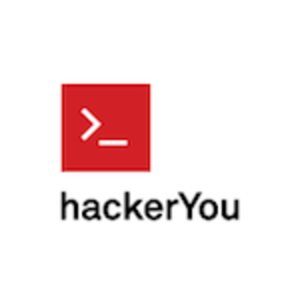
Heather Payne wanted to learn to code. She worked in marketing for a large company and wanted to learn to make websites on her own, but she didn’t have any support network: No developer friends to give her advice on what language to use. No one to recommend specific books or tutorials. No one to ask for help along the way. So she gave up.

Then during a business trip to Los Angeles in 2011, she stumbled onto a PyLadies workshop on the Python programming language. “It was such a supportive atmosphere,” Payne says. “I always felt dumb asking questions at other places, but at PyLadies, you can ask any question you want and no one makes you feel stupid.”
When Payne returned home to Toronto, she tweeted about her experience at PyLadies and suggested that Toronto needed a similar workshop series. The idea had legs: She received a flood of retweets, and more than 80 people showed up at the first planning meeting – including several developers willing to teach classes. Thus Ladies Learning Code was born.
The project was immensely successful: The monthly workshops filled up so fast, the organizers had to start offering classes twice monthly. Almost 2,000 women have completed Ladies Learn Code workshops, and more than 400 developers have signed up for the volunteer mailing list. Payne says there’s never been a shortage of volunteer teachers. “There’s not that many ways for developers to give back to the community that take advantage of their skills but aren’t just unpaid freelance work,” Payne explains. “A lot of people jump at the chance to do something like this.”
Enroll in HackerYou
Now Payne, along with Breanna Hughes, Laura Plant and Melissa Crnic – the other three women behind the nonprofit Ladies Learning Code – are starting HackerYou, a for-profit company that will teach classes on design and development. Payne says that although Ladies Learn Code has been self-funding, it’s not enough to turn the project into a full-time job for any of HackerYou’s founders. In order to take the project to a the next level, and keep paying the rent, they had to start a for-profit company.
HackerYou will bring the same model used by Ladies Learning Code to its students, and all of its teachers have experience as volunteers for the nonprofit. HackerYou is guaranteeing a 10:1 student to teacher ratio, and is making project-based learning the core of its curriculum. But instead of single-day workshops, which Ladies Learning Code will continue to offer, HackerYou will offer ongoing courses. And while Ladies Learning Code has always allowed men to participate, the new company is expressly open to men. The first course will focus on Web development and will convene in Toronto, but Payne says the team plans to offer courses in other cities, both in Canada and the United States.

A university alternative
As to the need of a private alternative to the university system, Payne points to a survey finding high demand for software developers from startups. A paper presented at the European Conference on Information Systems in 2009 confirms the need for information technology workers, even in a down economy.
Still, a 2008 study found that enrollment in university computer science programs in all but one Canadian region was actually down between 36% and 64% from its peak in 2002.
Computer science education has its issues in the U.S., as well. The University of Florida planned to cut its computer science department, and though the most drastic version of that plan has since been withdrawn, students and faculty are still fight to save the department.
Regardless of what you think of the merits of universal code literacy, HackerYou and similar programs in other cities – such as Code Academy in Chicago, General Assembly in New York City and Dev Bootcamp in San Francisco – have an opportunity to help close the talent gap.
A talent gap – and a gender gap
But Payne thinks HackerYou also has an advantage in being able to close the gender gap. The European Conference on Information Systems paper notes that women are tremendously under represented in the IT industry, and as ReadWriteWeb has pointed out, this gap starts in education. Payne thinks the fact that the company’s founders are women, along with the collective experience they bring to the table from Ladies Learning Code, will help HackerYou reach a 50/50 gender split – a ratio unheard of in male-dominated university computer science programs.
(If you want to learn code and don’t live near of the cities mentioned above, you can check out services such as Codecademy, as well as the wealth of free e-books on programming available on the Web.)
Photo by Jon Lim.

















